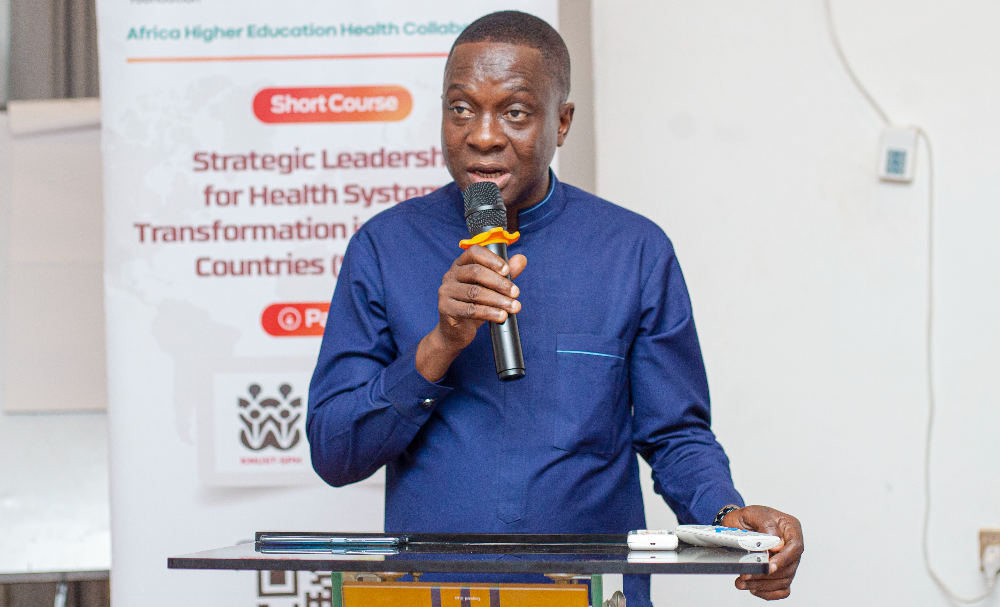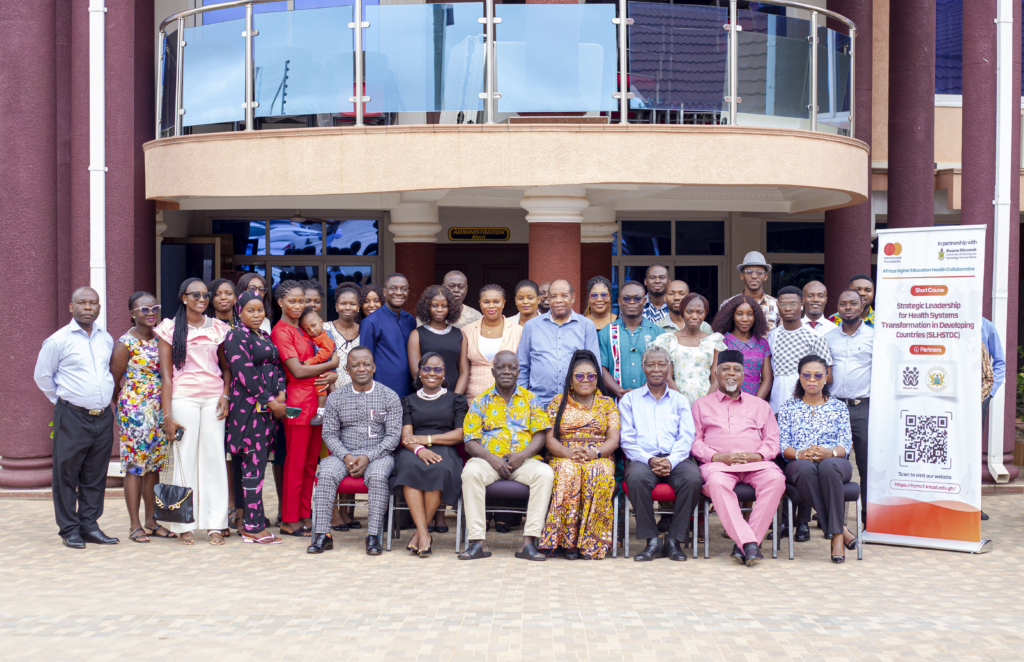Director of Regional Operations at the Food and Drugs Authority, Mrs Nora Nackie Terlabie, has called for stronger strategic leadership in the recruitment, training, and retention of healthcare workers to strengthen health systems in Ghana and across the continent.
Speaking at the opening ceremony of the Strategic Leadership for Health Systems Transformation in Developing Countries (SLHSTDC) short course at KNUST, Mrs Terlabie described healthcare workers as “the backbone of any health system.”
She delivered her remarks on behalf of the CEO of the Food and Drugs Authority, stressing that leadership in the health sector must be intentional and people-centered.
“Strategic leadership must prioritise recruitment, training, and retention of skilled personnel,” she said. She also highlighted the importance of creating supportive working environments that promote professional growth.
He spoke at the start of a week-long leadership training for twenty-five primary healthcare workers, organised by the Africa Health Collaborative at KNUST in partnership with the Mastercard Foundation.

Now in its third year, the programme is led by Dr Kofi Akohene Mensah under the Collaborative’s Health Employment pillar.
It is designed to build the leadership capacity of healthcare professionals in developing countries and equip them to drive meaningful change in their health systems.
Prof Easmon Otupiri, course coordinator from the KNUST School of Public Health, emphasised the need for innovation and adaptability in healthcare leadership.
“We need to do things differently and expect different results,” he said. “We need transformational leadership at all levels.”
Dean of the School of Public Health, Prof Peter Agyei Baffour, also encouraged participants to fully engage with the training, stressing that strategic leadership is essential to overcoming challenges in low-resource health settings.

The Africa Health Collaborative, supported by the Mastercard Foundation, operates through three core pillars: Health Employment, Health Entrepreneurship, and Health Ecosystems, to promote sustainable healthcare solutions across Africa.
DISCLAIMER: The Views, Comments, Opinions, Contributions and Statements made by Readers and Contributors on this platform do not necessarily represent the views or policy of Multimedia Group Limited.





